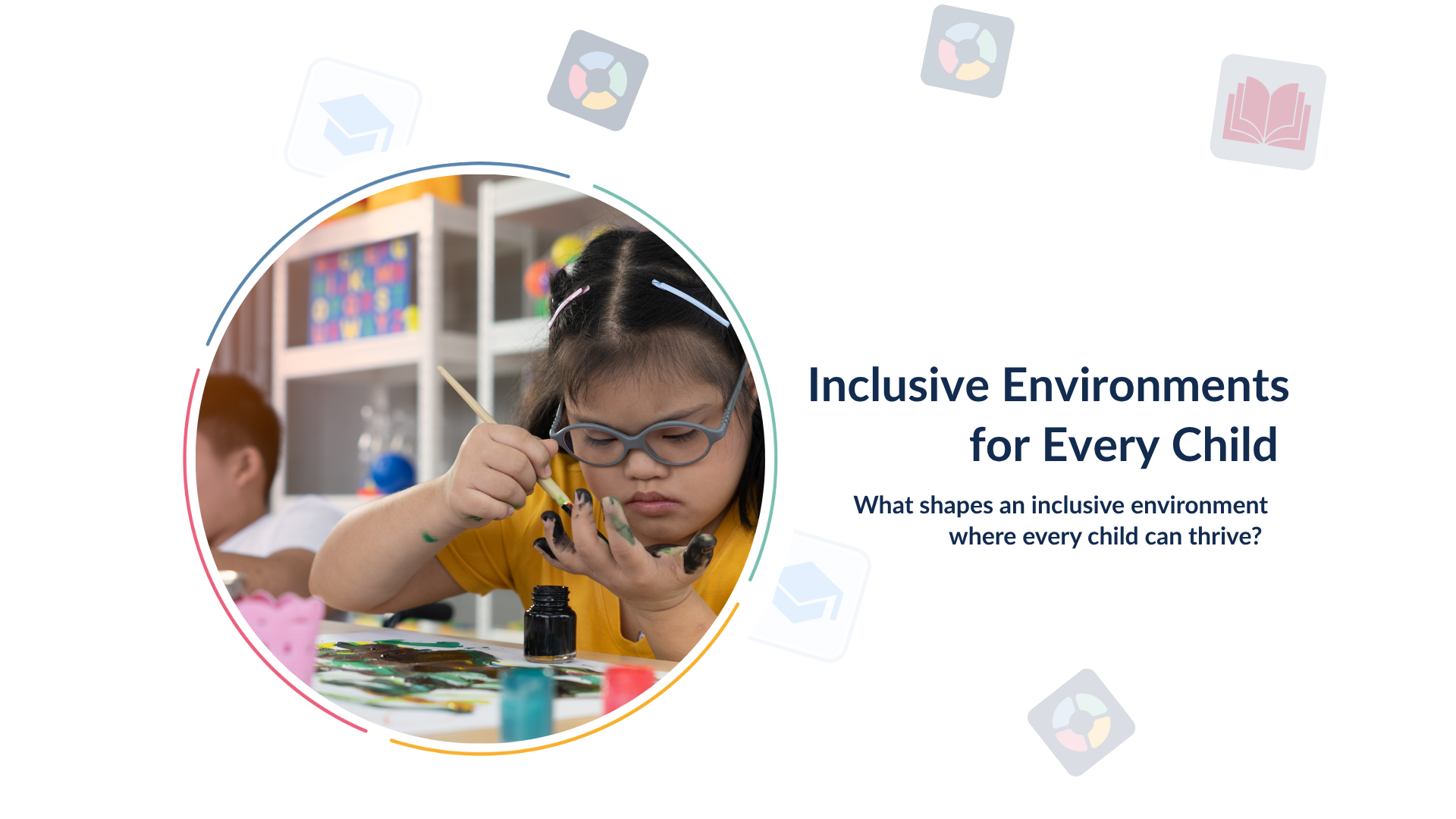Inclusive Environments for Every Child

Inclusive Environments for Every Child
With the contribution of Inclusion in Practice and a growing body of influential new research, we are starting to build a stronger evidence base around inclusive teaching, pedagogy and practice.
As the academic and policy work continues to develop at the national level, ImpactEd Evaluation wants to work directly with schools, to support them to understand the dynamics of inclusion in their own setting. The Inclusive Environments for Every Child project will surface the perspectives of teachers, families, and crucially, pupils themselves, in relation to inclusion. Reflecting the DfE's five SEND principles (Early, Local, Fair, Effective, Shared), the project will enable schools to act early through relevant insights into pupils' experiences, to use research and evidence in developing effective strategies, and to work in partnership with families.
Delivered in collaboration with Challenge Partners and a steering group Chaired by David Bartram, ImpactEd Evaluation’s new national research project focuses on three interconnected domains that the research shows shape every child's school experience:
- The Leadership Environment
Encompasses the strategic vision, operational delivery and the interpersonal relationships that bind the strategy together.
Placing inclusion as a strategic priority that is embedded in planning, shared across staff teams, and balances long-term ambition with short-term action, is shown to be important in the literature.
Evidence also shows that where pupils, parents, and professionals are made to feel valued in the way the school is run, young people flourish.
- The Teaching Environment
At its core, we know that the learning that pupils experience and the support provided to teachers to facilitate that learning, are the foundations of effective inclusion.
There is strong evidence to show that high-quality, evidence informed teaching benefits all children greatly, but those with SEND the most. Through the Inclusive Environments question sets we will explore how young people, teachers and parents are supported to participate in learning.
- The Physical Environment
An often-overlooked aspect of inclusion, the spaces we create can impact learning and engagement. For example, for pupils with Autism, that could be about ensuring access to quiet spaces for reflection or managing sensory stimuli like classroom displays and noise levels. For pupils transitioning from primary to secondary, unfamiliar surroundings can trigger significant anxiety.
These are essential elements of accessibility and belonging that schools should seek to understand, as they directly influence pupils' readiness to learn.
A broader range of voices
Inclusive Environments for Every Child gives everyone a voice in understanding and shaping inclusion - pupils across the school, teaching staff, parents and carers.
As well as providing a methodological comparison point, this broad approach to stakeholder voice will help us answer a critical question: are the barriers to learning we identify universal challenges affecting all pupils, or do they specifically impact particular pupil groups? This distinction matters enormously for resource allocation and strategic planning. If certain factors affect all pupils, addressing them benefits everyone. If they disproportionately affect pupils with SEND, for example, schools need to make more targeted interventions.
Actionable insights
The evidence base already tells us that inclusive environments are multifaceted and not fixed — they encompass everything from observable factors like physical spaces to hidden factors like the cognitive impact of overwhelming sensory environments, and the consistency of teaching.
That’s why we’re exploring both the visible and less visible elements of school environments in this research. Our aim is to provide actionable insights that go beyond theoretical frameworks.
How to get involved?
We are now opening up the Inclusive Environments for Every Child research project to more schools and trusts, to help leaders move beyond assumptions and towards evidence-informed practice.
Email Beth.Williams@impactedgroup.uk to join the cohort
As the project progresses, we will share findings with the system, to support capacity building and shared learning. We firmly believe that when we create environments that work for our most vulnerable pupils, we create better environments for everyone.
Get in touch
To speak to one of our senior team about how we could support your work, please get in touch


